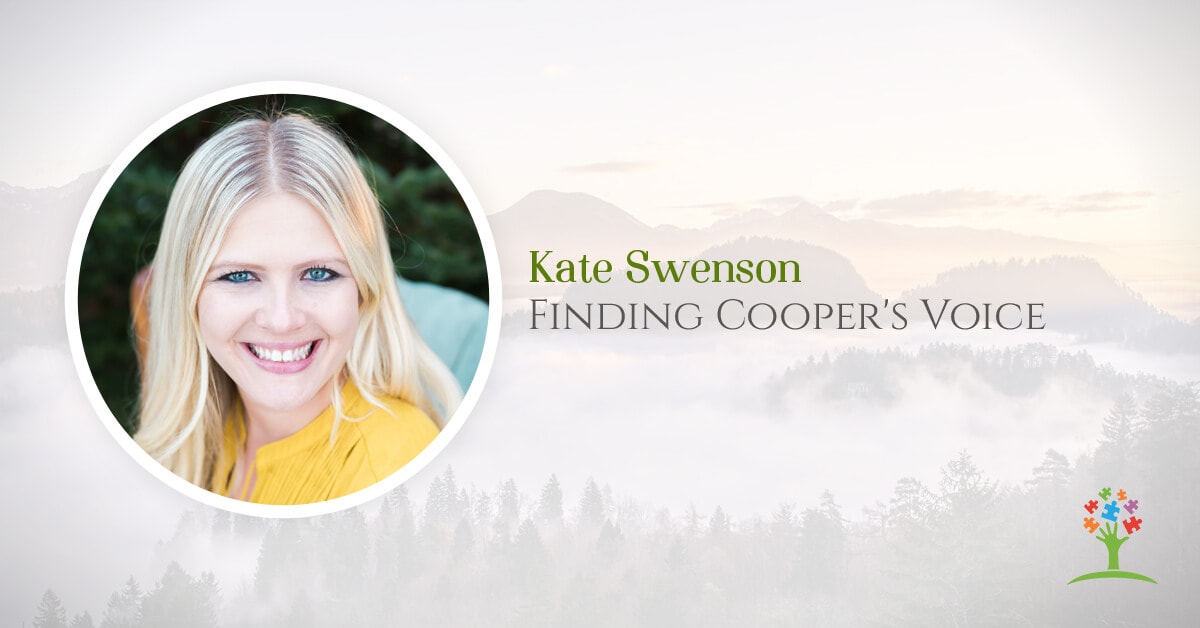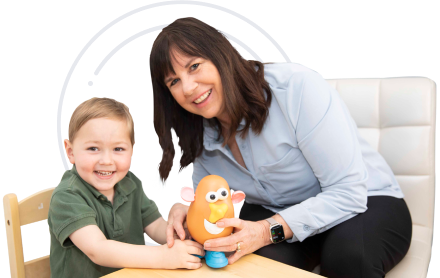Kate Swenson: Finding Cooper’s Voice

Want to Learn how to Increase Talking & Decrease Tantrums in Children with Autism or Toddlers Showing Signs?
Want to start making a difference for your child or clients?

TODAY'S GUEST
Today’s guest has been highly requested by many of my listeners, and I’ve been trying to get her on the show for over a year now. That’s why I’m so excited to introduce you to Kate Swenson, an autism mother to three boys; an author; and owner of the popular blog, Finding Cooper’s Voice.
Kate’s first-born son, Cooper, was diagnosed with severe nonverbal autism. There was a long time when Kate thought that something wasn’t typical with his development, but she brushed off autism because his symptoms were inconsistent with what she read online. For example, he was nonverbal but he pointed and waved, and it appeared that he played with toys. It wasn’t until he got older that Kate realized it was autism.
We cover a lot of really important topics in this interview, but one especially important topic is the decision to have another child after already having a child with autism. Kate perfectly describes the fear that comes with deciding to have another child, as well as the hope. Looking back, Kate swears that her third son saved her family and brought them closer than ever.
Mentioned In This Episode:
- marybarbera.com/workshops (Sign up for a free online workshop for parents and professionals)
- How to Recognize Early Signs of Autism in Toddlers Using MCHAT
- Is Lack of Pointing a Sign of Autism?
- On an Early Intervention Evaluation Waitlist for Autism? Here’s What You Can Do
- Getting Out of Denial and Taking Action | Autism Denial
- #004: Is it High Functioning or Low Functioning Autism?
- High Functioning Autism vs. Low Functioning Autism: Is There a Difference?
- Ruling Out Medical Issues in Children with Autism….Easier Said than Done!
- Is Autism Medication an Option for Treatment?
- How to Teach a Child with Autism to Take Medicine
- #034: Autism and Potty Training | Toilet Training Tips for Kids with Autism
- Potty Training Autism: Toilet Training Guide & Tips for Parents and Professionals
- #028: Autism & Medication with Dr. Michael Murray, Psychiatrist
Not sure how to write a review? Here’s a video.